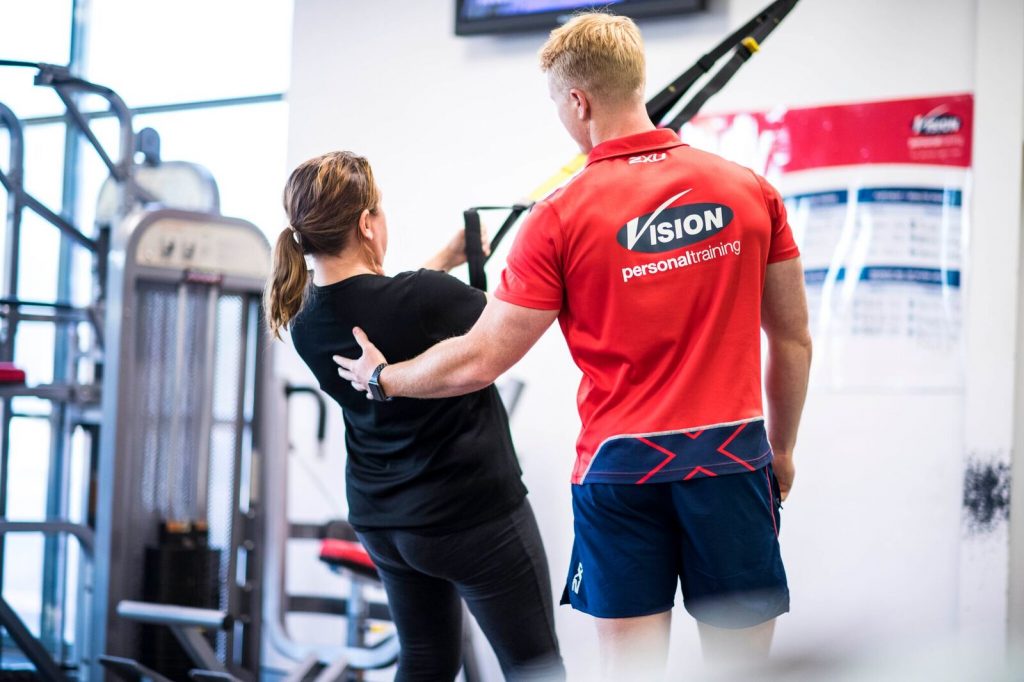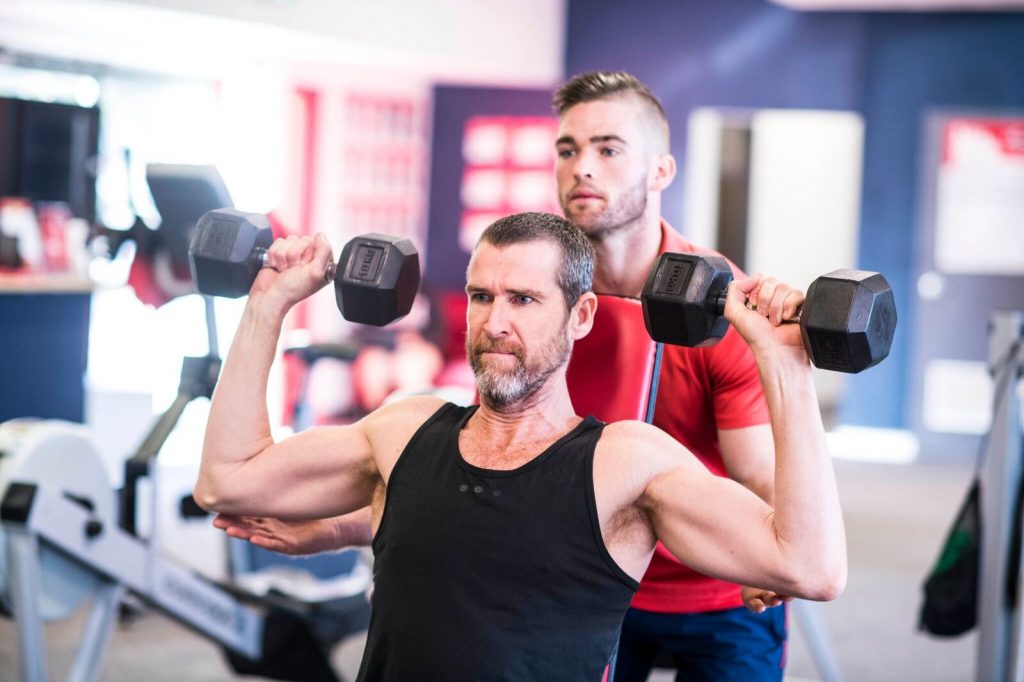Do you want to maintain quality of life as you grow older?
In this blog our friends at Vision Personal Training Sylvania discuss the benefits of resistance training in fighting the aging process.
Is it important you’re capable of performing your daily tasks, enjoying recreational activities, and caring for yourself and family? Do you want to remain fit, trim, strong and mobile for as long as you can? All of this doesn’t have to be just wishful thinking. You don’t have to accept frailty as you age. Resistance training is the key to turning back the clock!
Aging is associated with numerous physiologic and functional declines contributing to increased disability, disease, frailty, and falls. Following a structured resistance program as little as two times per week has the ability to combat weakness and frailty and their debilitating consequences. Training regularly can help reverse and reduce the risk of muscular, skeletal, cardiac and mental health related diseases caused by aging.
Resistance Training
Resistance training involves the applying load or residence to the body greater than it is accustomed to, causing the body to adapt, increasing strength, muscle tone, joints and bone density. Resistance training isn’t just for professional athletes nor is it just lifting heavy weights, simple weight bearing exercises with basic gym equipment or even body weight exercises can be enough to provoke an adaptation to occur and reap the benefits.
Muscular System
For many, aging is associated with the inevitable loss of strength, energy and vigour. However, aging is not always to blame often inactivity is the culprit. Adequate muscle function is vital for us to maintain our independence as we age. Sarcopenia; the loss of muscle mass and strength, “use it or lose it”, is a disease commonly accepted as a sign of aging. Sarcopenia results in loss of function, making daily tasks difficult to perform independently. Resistance training has been found to decrease the risk and effects of sarcopenia.
Resistance training has been found to improve the quality of life at any age and condition counteracting the weaknesses and frailty that come with aging, keeping us capable of doing daily tasks such as climbing stairs, walking long distances and carrying groceries. Resistance training has the ability to improve and maintain muscle strength, function, flexibility and synergy, leading to improved joint support and balance reducing risk of falls and injury which account for a large portion of hospitalisations.
Back Pain
Lower back pain is a common complaint and is often left unresolved, 14% of Australians (3 million people) are affected by on going back problems. Appropriate strengthening and stretching exercises of our back and core muscles helps reduce stress and strain placed on our spine, significantly decreasing the prevalence of back pain and alleviating pain and limitation of those suffering from lower back pain.

Skeletal System
Resistance training also has a positive impact on our skeletal system; improving bone quality, bone density and joint function. Osteoporosis is a condition in which skeletal material begins to weaken and deteriorate and is a common concern for aging adult’s, especially menopausal women who are at an increased risk of developing osteoporosis. Studies have found that resistance training as little as twice per week can dramatically decrease the risk of developing osteoporosis, not only slowing bone loss but increasing bone density combating the effects of osteoporosis. Similar benefits are seen for osteoarthritis which attacks your joint cartilage causing pain and stiffness in the joint.
Mental Health
Resistance training has a major effect on a person’s mental and emotional health. Studies have shown that people who exercise regularly sleep better, more deeply and for longer and wakening less often. Resistance training can help reduce depression, releasing serotonin “the feel good hormone”, boost self-confidence and self-esteem, and improve your sense of well-being.
Weight Management and Diabetes
Research shows that resistance training becomes even more important as we age and can positively affect insulin resistance, resting metabolic rate, glucose metabolism, blood pressure, body fat, and gastrointestinal transit time, which are associated with diabetes, heart disease, and cancer. Physical inactivity causes an average muscle loss of 2-3kg per decade, this amount muscle loss leads to a metabolic rate reduction of up to 10% and the energy that was previously used to supply muscles with energy is often stored as fat.
Positive effects on weight control are associated with resistance training. Resistance training increases our metabolism by increasing muscle mass which results in burning more energy doing daily activities, leading to weight loss if combined with a structured nutrition plan based on your goals, body type and activity level. During and after resistance training we burn energy at a greater than resting rate further influencing weight loss results. Studies have shown that resistance training can reverse age related decreases in glucose sensitivity; poor glucose metabolism is an associated risk factor for type II diabetes.

Lung and Heart Health
Combining resistance training with some aerobic (cardiovascular) exercise improves lung function and fitness. Sufferers of Chronic obstructive pulmonary diseases, which affects lung capacity and function, have found relief from exercises which improve function and strength of the abdomen and chest muscles which impact our lungs capabilities.
Heart health is also improved with resistance training especially when combined with aerobic (cardiovascular) training, helping to reduce the risk of developing cardiovascular disease by improving heart function and efficiency. Resistance training helps to reduce blood pressure and increase blood flow combined with aerobic training which helps reduce arterial stiffness which are all key contributors to improving cardiovascular health.
Cancer
There is research to support the benefits of resistance training on the risk of developing cancer especially when combined with healthy lifestyle habits. Studies also show positive benefits training has on cancer survivors helping to reduce recovery time and aids strength and body function return to normal, improving quality of life.
Incorporating a simple exercise program into your lifestyle which involves resistance training as little as two times per week has significant benefits to your overall health. Growing stronger and not older allows you to maintain your independence and combat frailty and disease before it occurs, making resistance training a great alternative to finding the fountain of youth.
Reach your individual fitness or weight-loss goals at Vision Personal Training Sylvania.























